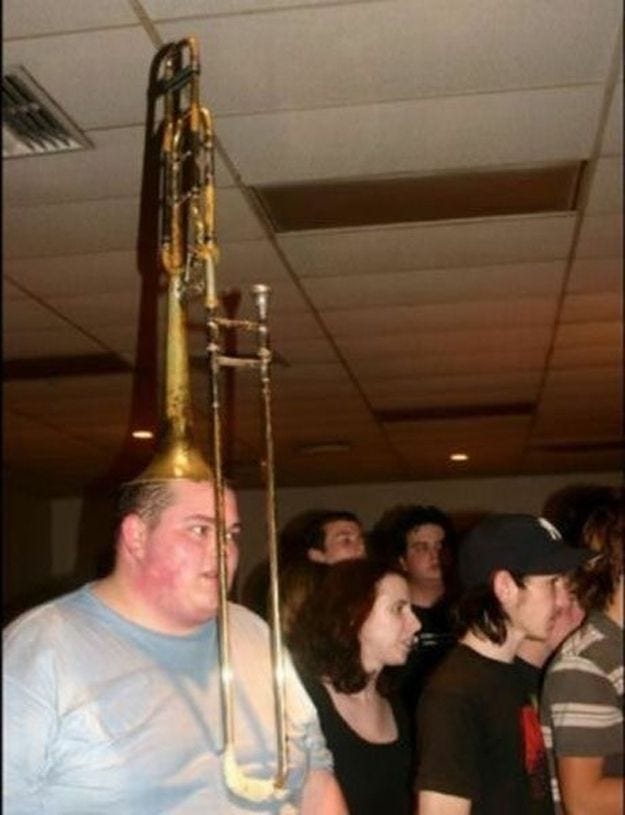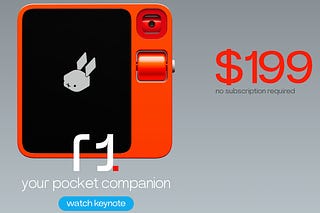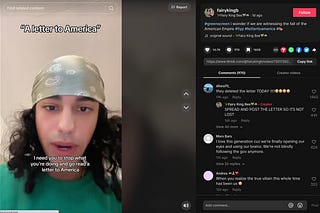

Discover more from Garbage Day
Meet Skatune Network, The Musician Keep Ska Alive On YouTube
"Don’t cap out your own life! Take risk! Try new things!"
Welcome to Extra Garbage Day! Every other week, I’ll be dropping a bonus Thursday issue just for paying subscribers. To start, these will be Q&As with interesting people I’ve been dying to interview. Let me know what you think.
Growing up in Boston in the 90s, I remember where I was in ‘97 when I first heard The Mighty Mighty Bosstones’ “The Impression That I Get”. I was obsessed. But the DJ would never actually say what band played the song. I was furious! This was years before Wikipedia, Google, or Shazam. There was simply no way to find out who sang this damn song.
Luckily, though, my family was a radio call-in family. Our two biggest scores over the years were winning Titanic tickets and, later, a Sega Dreamcast. After weeks of hearing this song I loved, but never knowing who played it, I finally got so frustrated I had my mom help me call the radio station. Seven-year-old me demanded to know who played it. That weekend, I went to either the Coconuts or Strawberries CD store in the next town over and picked up my first Bosstones album. It was music that sounded exactly like my ADHD-rattled brain. It was screaming one second and dancing the next. Bosstones lead singer (and later Jimmy Kimmel announcer???) Dickey Barrett sounded like Satan leading a drunk marching band. I was hooked. I wouldn’t find out there was more music like this though until 2000.
I was watching the Digimon movie and as the Digi Destined fought a computer virus to save the world from nuclear annihilation, “The impression That I Get” started blasting. I thought I was literally going to explode in a being of pure hype. Later on in the movie, during another fight scene, a similar sounding — but EVEN FASTER — band with horns started playing. That’s when I discovered the second-longest musical love of my life: Less Than Jake. I would then learn that this music was called ska music.
It’s been part of my life ever since. I played in a ska band all throughout high school. I spent my summers at Warped Tour, using my college press pass to interview bands like Reel Big Fish. I spent my early 20s in Brooklyn getting loaded at Bomb The Music Industry! shows. And when I was living in the UK in my late 20s, I would come home and see the Bosstones at their year Hometown Throwdown Christmas show. Ska was my gateway to punk, to emo, to the DIY ethics that inspired me start making stuff on the internet. Most of the good things in my life have, in some small way, started with, or involved, ska. So it should come as no surprise to anyone that I’m a tremendous fan of Skatune Network.
There’s a good chance you’ve stumbled across one of their incredible covers on YouTube. It’s even more likely that you may have encountered their album Ska Goes Emo, Vol. 1. They’ve been one of the people I’ve wanted to interview the most since Garbage Day first started. I find them really inspiring!
Genres like indie rock and emo and even EDM have had their bedroom phases, which I think ultimately saved them post-recession, when musicians could no longer afford full practice spaces. But that never really happened to ska. So to see Skatune Network blasting out incredible ska music from their bedroom on YouTube, remotely collaborating with other artists, and just all-around modernizing the genre is amazing. Plus, their Twitter account is great.
Yes, our interview below has a lot of ska talk in it, but I think it’s also a really insightful conversation about the internet, subcultures, using a music scene to combat fascism and racism, and just the joy of being a fan of something. Also, stream Kill Lincoln’s Can’t Complain.
You're probably the most vocal advocate for ska music I follow. Finding your account was like finding water in the desert. I've seen you tweet a few variations of this, but can you make your case for why Ska Is Not Dead?
What people fail to realize is that ska has been active in America since 1981. It didn’t pop off overnight. The underground network was built up for 15 or so years. Nobody wanted to play shows with these bands so they booked their own shows and built a national scene. When ska blew up in ‘96, people only paid attention to a crumb of what the genre had to offer, and despite those bands “falling off” as quick as they blew up, they continue to play crowds full of tens of thousands of people to this day. The underground and DIY scene that didn’t pop off remains unchanged to this day. The recession of 2008 and higher cost of living alongside streaming has hurt music in general, but ska bands have adapted. You may not see as much touring, but we have way more new and old bands playing shows and putting content out now more than ever. In my honest opinion, I think some of the best American ska records have come out in the last decade or so.
I feel like a lot of people might be confused or surprised that you're creating music in a genre that many consider to be "over," but doing it in a super modern way — creating music remotely with other artists, putting it out on YouTube, using social media to build a virtual scene. Can you tell me about how you approach it all?
I can’t trust anyone who deems music as “over,” to be honest. Those people can’t think for themselves, they allow society to dictate what’s worthy and not. When you consume art and media solely because you enjoy it, that’s when you start to find true joy, the things you love. I make ska because I like ska music. I’ve always been involved in DIY and I studied classical and jazz in college, so I’ve always had musicians of all genres I’ve looked up to and wanted to create art with. I always appreciate when musicians take influences from other genres and create something unique. That’s why I love asking musicians from other DIY bands, jazz musicians, and other unorthodox musicians to collaborate with. Ska has been a genre that never branches out from itself, so the music has become a caricature of itself, lacking diversity, with bands who grew up solely listening to Reel Big Fish. We don’t need another Orange County ska band. That style has been beaten to death and it’s a small percentage of all the sounds ska can be. So yeah, I strive to be creative, think outside the box, and mix unorthodox things together. Jamaicans mixing mento, calypso, rhythm & blues, and jazz together is how ska formed in the first place!
This is also something I've seen you tweet before, but can you talk a bit about why our current political moment is so right for DIY ska values?
Ska is an interesting genre when it comes to its values. On one hand, you have a vast majority of us who are well aware of the roots of the genre. Jamaican immigrants faced hardship in England in the 70s. The economy was bad and colonizer states love blaming immigrants instead of the ruling class. The white working class found solidarity with the immigrants and the second wave of ska was built off this racial unity. Most of us in the American ska scene have not forgotten this, but you almost have a second ska scene in America full of folks who didn’t find the genre through DIY, but rather through a 90s movie that had frat dude humor. So of course these folks got into “ska”, except they got into Reel Big Fish and Sublime and never learned any more while loudly boasting they love ska. Because of this loud group of ska fans, people think ska is a goofy-Hawaiian-shirt-frat-party-rock-white-boy genre when it actually has anti-racism embedded into its very fiber. From original Jamaican ska artists making songs about colonization, to new American third-wave bands/artists like Suicide Machines, Bruce Lee Band, Jeff Rosenstock, MU330, and Streetlight Manifesto making left-leaning music that specifically focuses on anti-racism or criticizing the systems of oppression that lead to racism. If people took the time to look beyond Reel Big Fish’s “Beer,” they would see that.
You put out an emo covers album a few months ago. How was that process? Were you excited about the response? I feel like it was everywhere and it felt like something the internet-at-large was super excited about.
It was so much fun and exciting! Believe it or not, emo is my favorite genre. And despite most of that record not being “true emo” or whatever, it was fun working on songs I love and grew up on, [turning them] into this ska vision. It was a huge process taking the covers I slowly worked up over two years and remixing and mastering them (some I even re-recorded), but the payoff was worth it. My favorite part about it is its ability to make people realize they don’t hate ska. So many people (including lots of my friends) told me that they hated ska, but they didn’t know ska could sound like what I do. I draw a lot of my inspiration from emo and DIY. While most ska punk bands try to get the punk side to sound like NOFX or Rancid, I’m pulling inspiration from Title Fight, Gouge Away, Jeff Rosenstock, Pup, and even indie bands like Illuminati Hotties and Mitski. When people see the diversity in the genre that’s not all Orange County ska, and see songs they love associated with it, it makes people really appreciate it.
This might be impossible to answer, but what's been your favorite cover to do?
OOOH this is definitely a tough one haha. I have a few contenders. The first being “One Summer’s Day” from Spirited Away. That was one of my most traditional ska-based covers, featuring a violin that added a whole level of depth to the cover. The Arthur theme song was another great one, had a real positive vibe to it and it’s super catchy. The Wonder Years cover of “Came Out Swinging” was another fun one, I tried my best to make it sound like early Jeff Rosenstock (ASOB and BTMI), and def was my fastest cover yet, and I love fast music. “White Christmas” was another fun one. Christmas music is honestly fun as heck to play, don’t judge me!
[Ed. note: The “Came Out Swinging” cover is my personal favorite.]
I've discovered a ton of great new artists through your Twitter feed. What advice would you give to the aging ska fans out there that feel intimidated about finding new artists?
I say don’t be afraid to try and experience new things! I get why people stick to what they know. It’s safe and reliable, and for a lot of people, they hold on to nostalgic things because nothing beats the feeling of experiencing something for the first time. You work a lot now and don’t have that much time to listen to new music, so why risk wasting your little time on a new band that just won’t hit the same? That’s where I say that’s more a reason to listen to new music! Life is so short and we spend decades slaving away for a corporate entity. Experiencing new music, new content, new food, new culture is what makes life worth it! It’s the same energy as ordering the same food at a restaurant, binging The Office for the 1000th time, or watching the same movie over and over to me. It’s fine to love those things, but don’t let it consume you and keep you from discovering what else is out there. When you tell yourself “nothing will be better than what I know,” you make up your mind that you’ve reached the best and you don’t allow yourself to truly experience anything new. Is a life like that even worth living? Out there, there’s always a song, a food, a show, a movie, an album, a drink, a city, a reality you’ll love more than your current favorite. Don’t cap out your own life! Take risk! Try new things!
And lastly, I've read a lot of arguments that popular music is becoming more and more post-genre — the emo rap wave, stuff like 100 Gecs — and that rock music or guitar music is on its way out. But that seems really reductive and kind of dumb. What do you think about that?
I briefly touched up on it earlier, but there’s no force that should tell you what is and isn’t relevant, and you shouldn’t listen to music based on what people say is relevant. Why do people say guitar/rock is on its way out? I think it’s stronger than ever now. Is it peaking commercially? No, but commercial success isn’t a measurement on how alive a genre. In fact, the idea of commercial success is the most damaging thing. People treat music as a fad more than something they personally love. When the fad dies, those who don’t genuinely love it go with it. Thankfully we have the internet and streaming connecting us who truly love music. Rock is dead but you have hundreds of subreddits full of millions of people sharing rock music. You have countless record labels like Counter Intuitive, Get Better Records, Asian man Records, Bad Time Records, and so many more, pumping out bands quarterly. All this is happening while the new generation creates their own identity and that is DOPE. Music is NOT a competition and the minute people stop treating it like one and supporting bands/artists solely because they enjoy their stuff and not because it’s a clout contest, then you’ll see musicians all over enjoying themselves more. I hope to see a rock band opening for an emo rapper and 100 Gecs someday!
Thanks for reading and being a supporter of Garbage Day! It really really means a lot. If you want some music recs, shoot me an email haha.
Also, here’s one more fun ska fact for you: My first week in college, my friend and I went to the last Arrogant Sons Of Bitches show at an old Long Island venue called The Crazy Donkey. The show was a drunken mess. Extremely good, but it was totally wild. Anyways, that following Monday, as I’m still shaking my hangover, I had my first meeting with my financial aid advisor. I open the door to the office and who’s sitting there? The ASOB trombone player! Really nice guy.
You all might actually recognize him, he went viral a while back and is included in a lot of those image round-ups you see on Facebook.

***Typos in this email aren’t on purpose, but sometimes they happen***
Subscribe to Garbage Day
A newsletter about having fun online.









